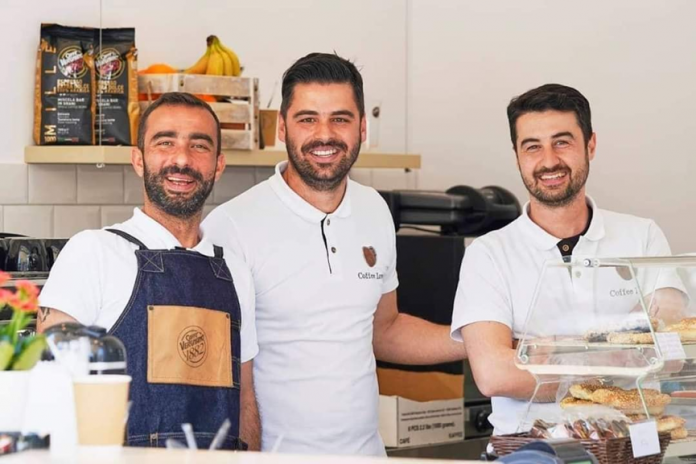Letter to Coffee Love Baristas, Athens, Attica-Greece
Stelios Gialis
Dears Theo, Dionysis and Tassos,
How is everything? We are writing to express our thanks, if not gratitude, for what you provide us in these turbulent times -as long as there is good coffee, things cannot be very bad, after all.
Before the Covid-19 pandemic, the Southern EU regions that we, the COVID-19_Regional_Labour team, focus upon, had a vibrant coffee culture, with thousands of places spread throughout the downtown areas and neighbourhoods. But by mid-April 2020, most of these coffee places, including Coffee Love, had suspended their activities, leaving our towns empty and sad. Other places decided to stay open but only for takeaway and delivery. We estimate that more than 70% of coffee places in Greece, Italy and Spain closed at some point during the lockdown, as continuing on an exclusively delivery or takeaway basis was not a rational economic choice.
By May 2020, Coffee Love had reopened. I recall that day with delight… Yet, around one fifth of coffee places never reopened, or may soon close, as they belong to the so called ‘high-risk’ sectors we have mapped below. Sales were much better in July and August, but the money spent for good coffee served in good coffee places remains lower than it used to be – perhaps 30% lower compared to 2019 levels. Hopefully, the increasing numbers of daily cases and deaths our in-depth data analytics reports – a resurgence in the negative impact of COVID-19 after successfully slowing the outbreak between March and June – will not lead to a new lockdown.

Citizens from Northern EU areas are frequently astonished by the thousands of coffee places in our regions. This is especially so in Greece – if you stand on a crossroads, you will easily see two or even three coffee places, all located within a very short distance from each other. What they really have to be aware of is that, along with issues of culture, self-employment and micro-entrepreneurship is deeply rooted in the ‘economic peculiarities’ of Southern EU regions.
Here, typical salaried employment in big (industrial) firms has never been the norm, while gaining some form of (in)formal income through self-employment has been a sine qua non of the decision to enter the labour market, at least post-2008. Better than brain-drain, I guess? And very helpful for those of us who love to measure our lives by the coffee spoon, as T.S. Eliot once brilliantly stated.
Yours
The Covid-19 Regional Labour Dashboard team



